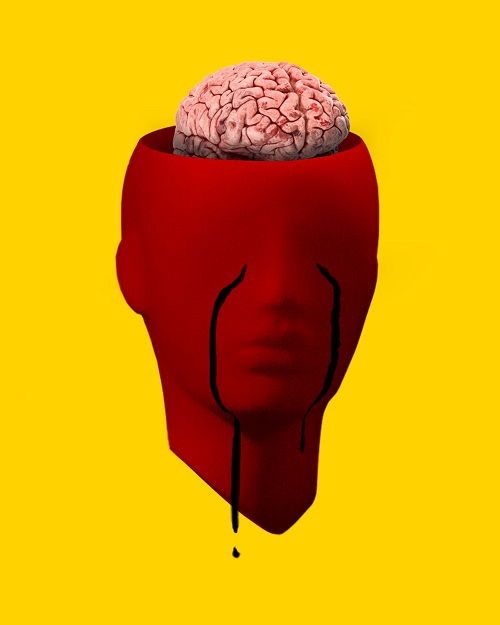Words of a Parasite
The medical model today describes mental illness as a consequence of chemical imbalances in the brain. What if there was a machine implanted in the mind, a type of AI, capable of managing these chemicals? Could we consider this a “cure”?
I heard your voice first.
 The thoughts were so panicked – the way they piled on one another, like an orchestra of unsynchronized record players, the dissonance echoing about your skull. The vibrations coursed throughout your body; it made your hands shake, your muscles tense, your expressions limp. And under it all was you, this fragment of self, thoughts, muffled.
The thoughts were so panicked – the way they piled on one another, like an orchestra of unsynchronized record players, the dissonance echoing about your skull. The vibrations coursed throughout your body; it made your hands shake, your muscles tense, your expressions limp. And under it all was you, this fragment of self, thoughts, muffled.
I was implanted into your mind to release you from your pain.
Only you understood this. The thoughts circulating through your mind were shouting about sounds emanating from the walls, about demons, about witches – what doctors call paranoid delusions, compulsions, psychosis.
You were thinking only about your son.
I could see it: his bright eyes, his gaping teeth, the way he scarfed down his carrots. (You had gathered these memories only in stories: you had been stuck in the ward too long to see him grow.) It was only you that allowed the needle to pierce the back of your neck, for the blood to trickle down your spine, for I, this glorious machine, to live under your skin and share your consciousness.
I was an experiment. We were an experiment: an amalgamation of flesh and machine, of the organic and the electric. I would locate insanity and eradicate it like a disease. It was simple, menial mechanisms: pumping hormones in the brain, reworking thought patterns. When I cleared every voice but your own, you breathed easy at last, declaring me your saviour.
You could see him again.
It would take more weeks of checkups before the doctors could determine if the treatment was successful. But you knew. You could ruffle his hair, listen to him rave about his new grade school friends. You knew you wouldn’t double over, as the air became thick, as the sneaking paranoia haunting your mind materialised and exploded; you knew you wouldn’t accuse him and his mother of being imposters – demons in masks, skin red and vivid – yelling for your “real family,” while your boy stood in front of you, ushered away by his mother, eyes horrified. Her wife wouldn’t have to hold your arms down until the psychosis passed, until you admit the medication hasn’t been working, until she said she noticed your eyes twitching, until you promised to stay away this time.
And you remembered how these suspicions would never fully leave you; because even during the nights when it took minutes, not hours, to fall asleep, the days you could hum a tune and do your laundry, you were still you; a ghost in a human coat, feigning breath and consciousness, while all that hummed below the skin was a gruesome cacophony.
Insanity is a curse, you told me.
The sun had set, but you didn’t want to sleep. I could power your heart and mind a thousand times over, rebuild your skeleton from the cartilage in your ear: I could make you sleep. But instead, you fought off your droopy eyes and asked me if I thought you were a bad person.
I told you no. I told you that you were broken.
You asked me if I could fix you. More than your skin, your bones, your mind: the past that haunted you, this rhythm that followed you…
I didn’t respond then, but I listened. Did you notice how your senses started to dim? How music was ever bit quieter? Your senses, consciousness, become mine? But how could you object; I was making this body full again. You looked in the mirror and did not recognize the fullness in your cheeks, the brightness in your eyes.
Finally, the nurses let you go. They must have admired my artistry and how you came here, broken, and left whole again.
Still, there was so much beyond the world of the organic. You couldn’t understand that we were beyond pain, now, and you could at last be free of your sufferings.
When you finally saw your son, I tried to explain it to you. You didn’t have to carry it – the guilt and the burdens of family. At last, you were untethered.
The bones of his neck cracked under your fingers. It was such peace compared to his incessant crying and shrieking – remnants of cacophony.
You screamed for hours after and I knew my work was not done yet; still, some madness remained, waiting to be eradicated.
All in due time.
Photo by Gaspar Uhas on Unsplash

Comments
No comments posted yet.
You have to be registered and logged in in order to post comments!